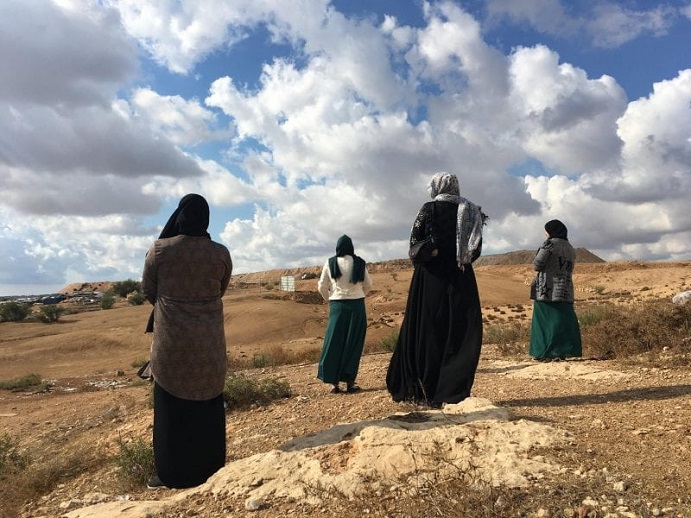Negev Coexistence Forum for Civil Equality / October 10, 2019
According to the official explanation of plans 624-0765792 and 652-0767921 “Temporary Housing Solutions and Public Buildings for the Bedouin Population in the Negev” proffered on the Israeli Planning Administration’s website, the purpose of the plan is:
“to provide temporary housing solutions for Bedouin populations presently living in unregulated communities, in cases where the population is urgently required to move from its present location prior to the erection of permanent buildings and in cases where it is necessary to regularize the settlement of the population in its current location in defined residential lots or in their proximity, in either temporary or permanent structures.”
This convoluted explanation is meant as cover for the real purpose behind the plans which is no more than another attempt by the Bedouin Authority to uproot a large part of the Bedouin population currently living in unrecognized villages in the Negev/Naqab and concentrate it in dense, urban townships. The plans, which would apply to the entire planning area of the Eastern Negev/Naqab and two Regional Councils (Al-Qassum and Neveh Midbar), will enable the establishment of supposedly transitional camps that will host tens of thousands of Bedouin people who will be displaced and relocated within the limits (blue line) of currently recognized villages and townships.
Only several ago, “The Prawer-Begin Plan”, offering similar relocations, ignited the Negev/Naqab and was eventually frozen due to severe objections. While Bedouins objected to the forced displacement of historical villages and discrimination in land distribution, right-wing movements demanded an even more extreme and broad reaction than that suggested in the Prawer-Begin Plan. Following the failure of this controversial plan in 2011, the Israeli Government has made repeated efforts to reframe it in order to accomplish the same goals by other means.
The Bedouin Authority plans to use this “speedy” mechanism to move people from unrecognized villages after forcing them to sign an “agreement”, similar to those signed by inhabitants of Umm al-Ḥīrān who are being expelled from their village so as to make possible the building of an exclusively Jewish settlement on the same land that they are being forced to leave. The mechanism that is being employed in these new plans is to push forward major national development plans, such as Highway 6, that are purposely positioned so as to justify the demand of the Government for the immediate evacuation of as many of the Bedouins living in unrecognized villages as possible.
NCF is highly concerned that these “temporary housing complexes”, which are planned to be built using sub-quality housing solutions (such as mobile homes), will become permanent camps on the outskirts of regional and local Bedouin councils, leaving more than 100,000 Bedouin people internally displaced under horrific conditions for decades with no real and adequate solution.
On the 6th of October 2019, the District Planning and Building Committee convened in order to discuss objections from the public. All of the heads of the Bedouin councils objected to the Plans. Several other organizations raised serious concerns and objections to the plans as well, including NCF, Adalah, Bimkom and the RCUV.
The plans were entrusted to the Committee, but no final decision has yet been made. The timetable for its implementation and the budget allocated to the authorities will only be discussed after the stage of hearing the objections of the public and the decision of the Committee on the matter.













